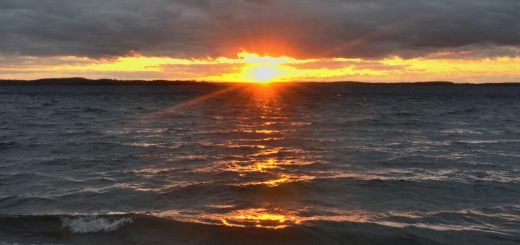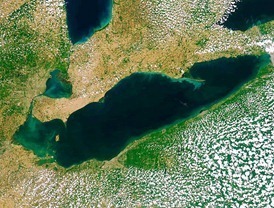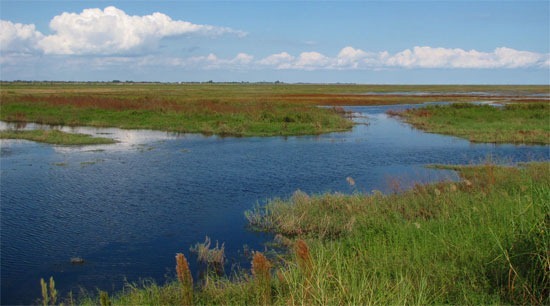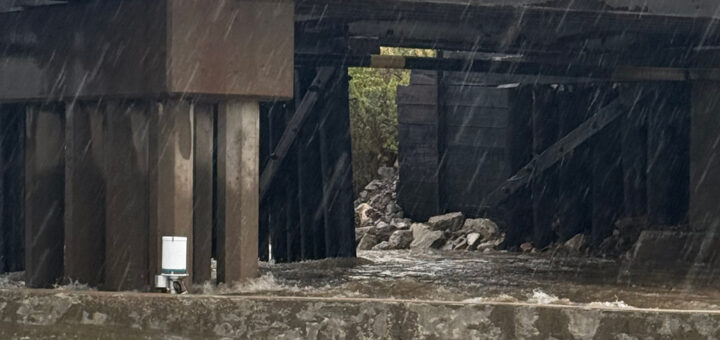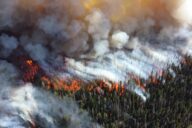Majority Of Lake Mendota’s Phosphorus Flows In During Just 29 Days Each Year
0Researchers at the University of Wisconsin – Madison have found that most of the phosphorus making it into Lake Mendota each year gets there over the course of just 29 days, according to The Capital Times. Their findings may help manage loads of phosphorus entering the lake in the future.
Most of the 29 days occur in the spring or late winter, when sudden increases in precipitation are more common. Nearly three-quarters of Mendota’s yearly phosphorus budget is filled during those times. “We’re getting bigger storms, and high-load days are associated with bigger storms,” said Steve Carpenter, director of the Center for Limnology at UW-Madison, in a university blog post.
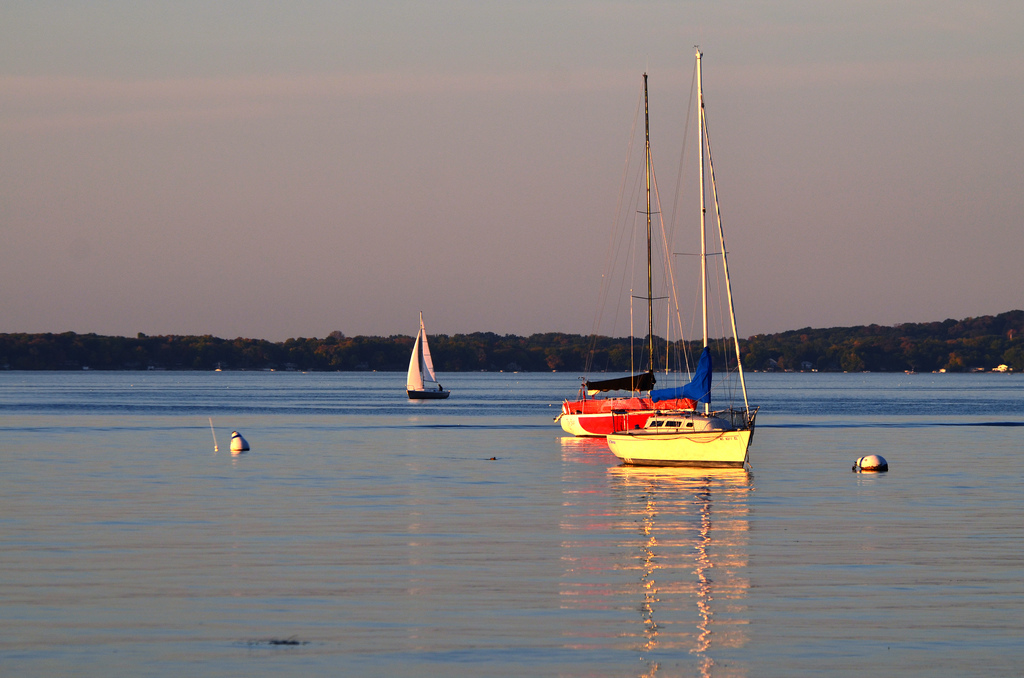
Sailboats anchored on Lake Mendota near Madison, Wisc. (Credit: Flickr User Richard Hurd via Creative Commons)
Those big storms wash a lot of algae-feeding muck into Mendota. Things like cow manure and fertilizer from crop fields are making their way in. With impervious surfaces like parking lots and roadways overtaking once-vegetated areas, less runoff is also captured by soil.
But there are things that can be done to tackle the issue. Carpenter says scientists, farmers and others should focus on reduction strategies during those spring or late winter days. “We’re not talking about how to reduce high P (phosphorus) loads every day, but about identifying the high-risk portion of the year and really keying in on it,” said Carpenter in the blog post. One reduction strategy, for example, could involve farmers storing manure in holding tanks until summertime when more vegetation lowers runoff risk, or sending manure to digesters.

A Wisconsin farm. (Credit: Yinan Chen via Wikimedia Commons)
Data analyzed for the study, published in the journal Aquatic Sciences, come from the U.S. Geological Survey, which maintains daily measurements of phosphorus in Lake Mendota.
“I think the data are really solid and the analysis is really solid. I think this really tells us the bulk of the problem in Mendota is coming from a small number of big events,” said Carpenter, in an interview with The Capital Times. “The low-hanging fruit for management is to get in and stop those big events.”





